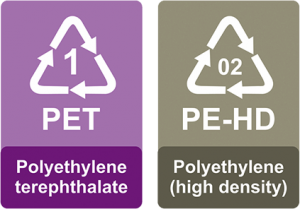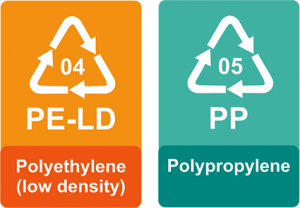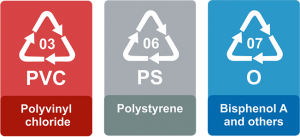Blog
Eco-Friendly – Tips for recycling more plastics at Home/Work
Recycling can conserve natural resources, prevent excess waste, contribute to preventing pollution, save enormous amounts of energy and create jobs. Today we’re going to give you some tips on how to improve on the amount of plastics you can recycle at home and/or work.
Recycling also has economic benefits. For example, in America in 2014 there was an estimated $730 million in plastic recycling; this in turn generates revenue locally.
The main thing that people don’t realise is that not all plastic is recyclable and each area has slightly different guidelines on certain plastics but should be similar on the majority of recyclable plastics. The main thing to remember is the different logos that represent the resin/plastic construction of the bottle or container. This logo is usually embossed into the plastic on the bottom of a bottle, container or displayed on the label of the product. There are 3 main types, these are as follows.
Type 1: Always Recycled
These plastics are widely recycled across the world and it is recommended to recycle as much if not all of these plastics if possible to reduce the amount of waste produced. This includes; drinks bottles, milk and juice jugs, containers for household products etc…
Type 2: Sometimes Recycled
As for the second group of recyclables, it would be advised that you contact your local recycling centre to see if they accept said types of plastics to ensure that they are in fact recyclable at your local plant. The majority of plants do accept these types of plastics but it is better to be safe than sorry. These include; Food take-out containers, bread bags, most shop brought plastic bags, microwaveable containers, plastic rings off of drinks cans etc…
Type 3: Rarely Recycled
The final category of plastic are rarely recycled and are usually destined for landfill with the exception of a few plants, hopefully as technology advances these will become more widely recyclable. These include; Styrofoam cups and plates, PVC (Polyvinyl-chloride), plastic lids, nylon, and anything that is only part plastic.
It should be noted that some recycling plants will not accept a lot of the type 3 plastics in their bins but will accept it if it is brought to the plant directly.
It would also be advised not to mix these plastic types as some of the type 3 plastics would contaminate the recycling stream. If possible it is also recommended to wash all plastics to avoid the growth of mold and to prevent insects and animals scavenging.
Feel free to Contact Us Today if you would like to enquire about our range of 100% recycled plastic products.



